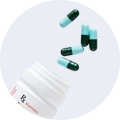Water treatment chemical play a crucial role in ensuring that water is safe, clean, and suitable for various purposes, whether for drinking, industrial use, or environmental protection. Here are the common uses of water treatment chemical across different applications:
1. Municipal Water Treatment
Municipal water treatment involves purifying water from natural sources (such as rivers, lakes, and groundwater) to make it safe for human consumption.
Key Uses:
- Disinfection: chemical like chlorine, chloramine, and ozone are used to kill or deactivate harmful microorganisms (bacteria, viruses, and protozoa) in water.
- Coagulation and Flocculation: Coagulants (e.g., aluminum sulfate, ferric chloride) and flocculants (e.g., polyacrylamide) are added to neutralize the electrical charges of suspended particles, causing them to clump together and form larger particles (flocs) that can be more easily removed through sedimentation or filtration.
- pH Adjustment: Acids (e.g., sulfuric acid) or bases (e.g., sodium hydroxide) are used to adjust the pH of water to optimal levels for subsequent treatment processes and to prevent corrosion in distribution pipes.
- Corrosion Control: Corrosion inhibitors (e.g., zinc orthophosphate) are added to protect metal pipes and infrastructure from corrosion.
- Scale Prevention: Scale inhibitors (e.g., polyphosphates, polyacrylic acid) prevent the buildup of mineral deposits (scale) in pipes and equipment, ensuring smooth water flow and reducing maintenance costs.
2. Industrial Water Treatment
Industries require high-quality water for various processes, such as cooling, boiler feed, and manufacturing. Water treatment chemical are essential to ensure that water meets the specific requirements of these processes.
Key Uses:
- Cooling Water Treatment: chemical like biocides (e.g., chlorine, quaternary ammonium compounds) and scale inhibitors (e.g., polyphosphates) are used to prevent biofilm formation and scale buildup in cooling towers and heat exchangers.
- Boiler Water Treatment: Corrosion inhibitors (e.g., sodium sulfite) and oxygen scavengers (e.g., hydrazine) are added to protect boiler systems from corrosion and scale formation, ensuring efficient heat transfer and prolonging equipment life.
- Process Water Treatment: Specific chemical are used to remove contaminants, adjust pH, and prevent fouling in industrial processes. For example, activated carbon is used to remove organic contaminants, and ion exchange resins are used to remove dissolved salts.
- Wastewater Treatment: chemical are used to treat industrial wastewater before it is discharged into the environment. Coagulants, flocculants, and oxidizing agents (e.g., hydrogen peroxide) are used to remove pollutants and stabilize the wastewater.
3. Residential Water Treatment
Homeowners often use water treatment chemical to improve the quality of water for drinking, cleaning, and other household purposes.
Key Uses:
- Water Softening: Ion exchange resins are used in water softeners to remove hardness minerals (calcium and magnesium) from water, reducing scale buildup in pipes and appliances.
- Disinfection: Small-scale disinfectants like chlorine tablets or UV light systems are used to ensure that water is free from harmful microorganisms.
- pH Adjustment: Homeowners may use pH adjusters to correct acidic or alkaline water, preventing corrosion or scaling in plumbing systems.
- Odor and Taste Improvement: Activated carbon filters are used to remove chlorine, organic compounds, and other substances that affect the taste and odor of water.
4. Agricultural Water Treatment
Agriculture relies on clean water for irrigation, livestock, and aquaculture. Water treatment chemical help ensure that water is free from contaminants that could harm crops or animals.
Key Uses:
- Irrigation Water Treatment: chemical like chlorine or hydrogen peroxide are used to disinfect irrigation water, preventing the spread of plant diseases.
- Livestock Water Treatment: Disinfectants and pH adjusters are used to ensure that water for livestock is safe and free from harmful pathogens.
- Aquaculture: chemical like formalin and hydrogen peroxide are used to control algae and pathogens in fish farms, ensuring a healthy environment for aquatic animals.
5. Environmental Protection
Water treatment chemical are also used to protect the environment by treating wastewater and stormwater runoff before it is discharged into natural water bodies.
Key Uses:
- Wastewater Treatment: chemical like coagulants, flocculants, and disinfectants are used to remove pollutants and pathogens from municipal and industrial wastewater, ensuring compliance with environmental regulations.
- Stormwater Treatment: chemical like iron salts are used to remove phosphorus and other pollutants from stormwater runoff, reducing the impact on rivers, lakes, and oceans.
6. Emergency and Disaster Response
In situations like natural disasters or water contamination incidents, water treatment chemical are essential for providing safe drinking water.
Key Uses:
- Emergency Disinfection: Portable water treatment systems using chlorine tablets or UV light are used to disinfect water in disaster-affected areas.
- Decontamination: chemical like activated carbon and oxidizing agents are used to remove contaminants from water sources affected by spills or contamination.
Conclusion
Water treatment chemical are indispensable in ensuring that water is safe, clean, and suitable for its intended use. They are used in a wide range of applications, from municipal water treatment to industrial processes, residential use, agriculture, and environmental protection. By effectively removing contaminants, controlling pH, preventing corrosion, and disinfecting water, these chemical play a critical role in maintaining public health, protecting infrastructure, and preserving the environment.
